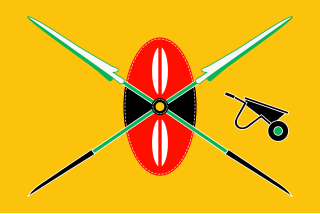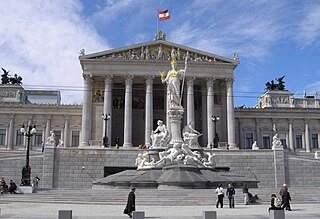
Naturalization is the legal act or process by which a non-national of a country acquires the nationality of that country after birth. The definition of the International Organization for Migration of the United Nations does not include automatic acquisition that is not initiated by the individual concerned or his or her legal agent or acquisition of nationality by declaration. It usually involves an application or a motion and approval by legal authorities. The rules of naturalization vary from country to country but typically include a promise to obey and uphold that country's laws and taking and subscribing to an oath of allegiance, and may specify other requirements such as a minimum legal residency and adequate knowledge of the national dominant language or culture. To counter multiple citizenship, some countries require that applicants for naturalization renounce any other citizenship that they currently hold, but whether this renunciation actually causes loss of original citizenship, as seen by the host country and by the original country, will depend on the laws of the countries involved.

Jus soli, meaning 'right of the soil', is the right of anyone born in the territory of a state to nationality or citizenship, also commonly referred to as birthright citizenship in some Anglophone countries, is a rule defining a person's nationality based on their birth in the territory of the country.

The president of the Republic of Kenya is the head of state and head of government of the Republic of Kenya. The president is also the head of the executive branch of the Government of Kenya and is the commander-in-chief of the Kenya Defence Forces. The country's current president is William Ruto since 13 September 2022.
Age of candidacy is the minimum age at which a person can legally hold certain elected government offices. In many cases, it also determines the age at which a person may be eligible to stand for an election or be granted ballot access.
Nationality law is the law of a sovereign state, and of each of its jurisdictions, that defines the legal manner in which a national identity is acquired and how it may be lost. In international law, the legal means to acquire nationality and formal membership in a nation are separated from the relationship between a national and the nation, known as citizenship. Some nations domestically use the terms interchangeably, though by the 20th century, nationality had commonly come to mean the status of belonging to a particular nation with no regard to the type of governance which established a relationship between the nation and its people. In law, nationality describes the relationship of a national to the state under international law and citizenship describes the relationship of a citizen within the state under domestic statutes. Different regulatory agencies monitor legal compliance for nationality and citizenship. A person in a country of which he or she is not a national is generally regarded by that country as a foreigner or alien. A person who has no recognised nationality to any jurisdiction is regarded as stateless.

Italian nationality law is the law of Italy governing the acquisition, transmission and loss of Italian citizenship. Like many continental European countries it is largely based on jus sanguinis. It also incorporates many elements that are seen as favourable to the Italian diaspora. The Italian Parliament's 1992 update of Italian nationality law is Law no. 91, and came into force on 15 August 1992. Presidential decrees and ministerial directives, including several issued by the Ministry of the Interior, instruct the civil service how to apply Italy's citizenship-related laws.

The primary law governing nationality of Portugal is the Nationality Act, which came into force on 3 October 1981. Portugal is a member state of the European Union (EU) and all Portuguese nationals are EU citizens. They are entitled to free movement rights in EU and European Free Trade Association (EFTA) countries and may vote in elections to the European Parliament.

Austrian nationality law details the conditions by which an individual is a national of Austria. The primary law governing these requirements is the Nationality Law, which came into force on 31 July 1985.
Status as a natural-born citizen of the United States is one of the eligibility requirements established in the United States Constitution for holding the office of president or vice president. This requirement was intended to protect the nation from foreign influence.

Bulgarian nationality law is governed by the Constitution of Bulgaria of 1991 and the citizenship law of 1999.

The Romanian nationality law addresses specific rights, duties, privileges, and benefits between Romania and the individual. Romanian nationality law is based on jus sanguinis. Current citizenship policy in Romania is in accordance with the Romanian Citizenship Law, which was adopted by the Romanian Parliament on March 6, 1991, and the Constitution of Romania, which was adopted on November 21, 1991.

Moldovan nationality law dates back to June 2, 2000 and has been amended several times, with the latest modifications being made in 2014. It is based on the Constitution of Moldova. It is mainly based on Jus sanguinis.

Uruguayan nationality law is based on the principle of Jus soli and a limited form of Jus sanguinis. The Uruguayan Constitution does not use the word "national" in defining those inhabitants (habitantes) of Uruguay. Those inhabitants are described as "natural citizens" and "legal citizens" in Article 73 of the Constitution. According to Article 74, natural citizens are born in the territory of Uruguay and the children of natural citizens, wherever those children are born. In Article 75, the steps to become a legal citizen are set forth. In terms of the text of the Constitution, the term national is only introduced in the Constitution in Article 81. Article 81 states that, "Nationality is not lost by being naturalized in another country, to recover the exercise of the rights of citizenship, it is enough to come to the Republic (avecinarse) and register in the Civic Registry." Further, a second clause in Article 81 provides, "Legal citizenship is lost by any other form of subsequent naturalization."

Lebanese nationality law governs the acquisition, transmission and loss of Lebanese citizenship. Lebanese citizenship is the status of being a citizen of Lebanon and it can be obtained by birth or naturalization. Lebanese nationality is transmitted paternally. Therefore, a Lebanese man who holds Lebanese citizenship can automatically confer citizenship to his children and foreign wife. Under the current law, descendants of Lebanese emigrants can only receive citizenship from their father and women cannot pass on citizenship to their children or foreign spouses.
Multiple citizenship is a person's legal status in which a person is at the one time recognized by more than one country under its nationality and citizenship law as a national or citizen of that country. There is no international convention which determines the nationality or citizenship status of a person, which is consequently determined exclusively under national laws, that often conflict with each other, thus allowing for multiple citizenship situations to arise.

Thai nationality law includes principles of both jus sanguinis and jus soli. Thailand's first Nationality Act was passed in 1913. The most recent law dates to 2008.

Albanian nationality law is based on a mixture of the principles of Jus sanguinis and Jus soli. In other words, both place of birth and Albanian parentage are relevant for determining whether a person is an Albanian citizen. It is regulated by the "Law on Albanian Citizenship". In some circumstances citizenship is granted to children born in Albania to non-Albanian parents. This is not the case where parents are temporary or short-term visitors. As suggested by the United Nations and Council of Europe, all efforts are made in order to avoid statelessness.

Venezuelan nationality law is the law governing the acquisition, transmission and loss of Venezuelan citizenship. It is based on the principle of jus soli: any person born in Venezuela acquires Venezuelan citizenship at birth, irrespective of nationality or status of parents. Venezuelan nationality law is regulated by Section 1 of Chapter 2 of the Constitution of Venezuela and by the Nationality and Citizenship Act of 2004.
Honduran nationality law is regulated by the Constitution, the Migration and Aliens Act, the 2014 Law on Protection of Honduran Migrants and their Families and relevant treaties to which Honduras is a signatory. These laws determine who is, or is eligible to be, a citizen of Honduras. The legal means to acquire nationality and formal membership in a nation differ from the relationship of rights and obligations between a national and the nation, known as citizenship. Honduran nationality is typically obtained either on the principle of jus soli, i.e. by birth in Honduras; or under the rules of jus sanguinis, i.e. by birth abroad to a parent with Honduran nationality. It can also be granted to a permanent resident who has lived in the country for a given period of time through naturalization.














